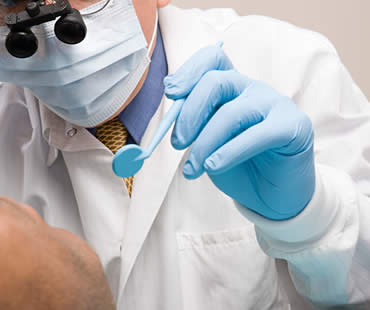The days are gone when your only option for replacing missing teeth in your smile was getting dentures. Dental implants are the newest and most advanced method of restoring missing teeth, and this type of restoration accomplishes the task with natural-looking and comfortable results.
Dental implants actually replace the missing roots of a tooth that is gone. It is a very specialized procedure which requires the skill and experience of a qualified dentist or oral surgeon. The implant post, usually made of titanium, is surgically placed into a healthy jawbone. You can’t see the post after it is inserted, and then time is allowed for the post to properly fuse with the bone in a process called osseointegration. Once the area has fully healed, an artificial tooth or crown is placed on top. This completes the restoration so that it looks, feels and functions like a real tooth.
The dental implant process does not damage any adjacent teeth, and others likely won’t even be able to tell you had the procedure. Your smile is fully restored, and the tooth is strong and durable. Implants are typically lifelong solutions with good oral hygiene and regular dental checkups. They avoid some of the common complaints associated with other restoration methods, such as slipping in your mouth or having to alter your diet. After the initial implant placement, there is no mouth discomfort or irritation. Also, there is no special maintenance required with implants; normal brushing and flossing do the trick.
Another important advantage of implants is that the resorption or deterioration of bone and gum tissue in the area of your missing tooth does not occur. This prevents the side effect of premature aging which may occur when teeth are missing. Also, dental implants are not at risk for infection.
Dental implants have proven to be a very safe, reliable and effective way to restore your mouth to its complete and finest. Many patients consider implants to be the miracle solution for missing teeth.
We look forward to seeing you in our Weymouth dental office
















